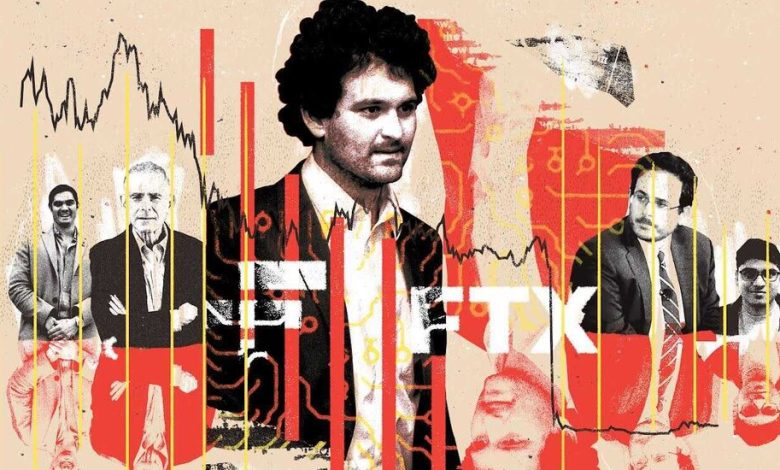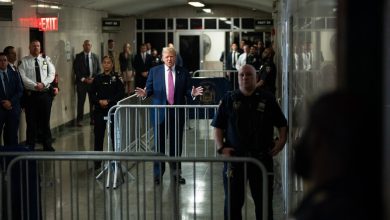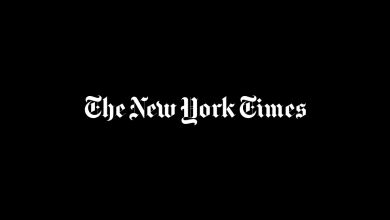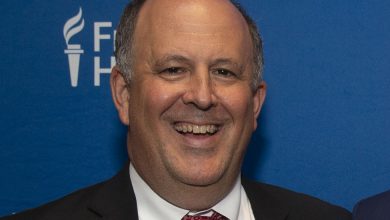FTX Inquiry Expands as Prosecutors Reach Out to Former Executives

Federal prosecutors are scrutinizing a growing array of people tied to Sam Bankman-Fried’s collapsed cryptocurrency empire, including his father, his brother and former colleagues, as part of a rapidly expanding investigation into one of the biggest American financial crime cases in more than a decade, according to 13 people with knowledge of the inquiry.
The U.S. attorney’s office in Manhattan has created a special task force to pursue its investigation into the collapse of FTX, the crypto exchange founded by Mr. Bankman-Fried.
More than half a dozen prosecutors, led by Damian Williams, the U.S. attorney for the Southern District of New York, are building the criminal case and tracking down the billions of dollars in customer money that Mr. Bankman-Fried has been charged with misappropriating.
In recent weeks, prosecutors have had talks with lawyers representing a dozen former executives and employees at FTX and Alameda Research, the hedge fund Mr. Bankman-Fried also founded, 11 people with knowledge of the inquiry said. Prosecutors have also examined the role of Mr. Bankman-Fried’s family members in his business empire, six people with knowledge of the matter said.
The collapse of FTX has forced virtually everyone in Mr. Bankman-Fried’s immediate orbit to seek legal counsel as the investigation intensifies and prosecutors weigh bringing more charges. Defense lawyers at the law firms Mayer Brown, Steptoe & Johnson, and Covington & Burling each represent multiple former FTX executives who may have information to contribute.
“As people begin flipping or cooperating with the government, it can lead to new lines of inquiry and new people of interest,” said Daniel Hawke, a lawyer for the firm Arnold & Porter who was a former director of the Securities and Exchange Commission’s market abuse unit.
The FTX investigation could also ensnare companies that either received money from the exchange or lent it funds. The collapse of FTX last year set off a crisis at the crypto lending firm Genesis, which was recently charged with securities law violations by the S.E.C. And in late January, a bipartisan group of senators sent a letter to Silvergate, a bank that did business with FTX, asking company officials whether they were aware of the exchange’s misuse of customer money.
In addition to tracking down customer funds, prosecutors are trying to recover hundreds of millions of dollars that were stolen from the exchange by a hacker around the time FTX filed for bankruptcy in November. And they are scrutinizing the more than $90 million in campaign contributions that FTX employees and others close to the company gave to congressional candidates and political action committees.
Much of the criminal case against Mr. Bankman-Fried could hinge on testimony from his former colleagues. Two of his closest advisers, Caroline Ellison and Gary Wang, pleaded guilty to fraud in December and have been cooperating with prosecutors for months. Now, the investigators are focusing their attention on other former FTX executives.
What to Know About the Collapse of FTX
What is FTX? FTX is a now bankrupt company that was one of the world’s largest cryptocurrency exchanges. It enabled customers to trade digital currencies for other digital currencies or traditional money; it also had a native cryptocurrency known as FTT. The company, based in the Bahamas, built its business on risky trading options that are not legal in the United States.
Who is Sam Bankman-Fried? He is the 30-year-old founder of FTX and the former chief executive of FTX. Once a golden boy of the crypto industry, he was a major donor to the Democratic Party and known for his commitment to effective altruism, a charitable movement that urges adherents to give away their wealth in efficient and logical ways.
How did FTX’s troubles begin? Last year, Changpeng Zhao, the chief executive of Binance, the world’s largest crypto exchange, sold the stake he held in FTX back to Mr. Bankman-Fried, receiving a number of FTT tokens in exchange. In November, Mr. Zhao said he would sell the tokens and expressed concerns about FTX’s financial stability. The move, which drove down the price of FTT, spooked investors.
What led to FTX’s collapse? Mr. Zhao’s announcement drove down the price and spooked investors. Traders rushed to withdraw from FTX, causing the company to have a $8 billion shortfall. Binance, FTX’s main rival, offered a loan to save the company but later pulled out, forcing FTX to file for bankruptcy on Nov. 11.
Why was Mr. Bankman-Fried arrested? FTX’s collapse kicked off investigations by the Justice Department and the Securities and Exchange Commission focused on whether FTX improperly used customer funds to prop up Alameda Research, a crypto trading platform that Mr. Bankman-Fried had helped start. On Dec. 12, Mr. Bankman-Fried was arrested in the Bahamas for lying to investors and committing fraud. The day after, the S.E.C. also filed civil fraud charges.
Prosecutors have had conversations with a lawyer for Sam Trabucco, a former co-chief executive of Alameda Research, according to three people with knowledge with the matter. They have also met in person with Daniel Friedberg, who was a top in-house lawyer at FTX, two people said.
And in court filings, prosecutors have said they are in contact with Ryne Miller, the general counsel of FTX’s U.S. subsidiary who helped manage the crisis in the frantic final days before FTX’s bankruptcy.
The authorities have also had discussions with a lawyer for Nishad Singh, a former top engineer at FTX who had a minority stake in the exchange, about whether he would cooperate as part of a potential plea agreement, according to three people with knowledge of the conversations. Mr. Singh, a major donor to Democratic politicians, has not been charged with any wrongdoing, but government documents claim that he had been aware that FTX misused customer money and that he had received a $543 million loan from Alameda.
The talks between prosecutors and Mr. Singh were first reported by Bloomberg, and Mr. Friedberg’s contact with prosecutors was earlier reported by Reuters.
As they’ve spoken with witnesses and lawyers, prosecutors have also asked questions about Ryan Salame, a former FTX executive who donated tens of millions of dollars to Republican politicians, according to three people with knowledge of the matter.
Conversations between defense lawyers and prosecutors do not necessarily indicate a person is under investigation. It’s common for the authorities to engage in such conversations to determine whether people have information that would make them helpful to the case as witnesses.
Mr. Bankman-Fried, 30, has pleaded not guilty to charges of fraud, money laundering and campaign finance violations. A federal judge has granted him bail under strict conditions, requiring him to remain confined to his parents’ home in Palo Alto, Calif., as he awaits a criminal trial scheduled for October.
A spokesman for the U.S. attorney’s office in Manhattan declined to comment.
One aspect of the investigation that could soon expand is the inquiry into FTX’s campaign finance activities. Prosecutors are particularly interested in whether FTX engaged in an illegal scheme to funnel tens of millions of dollars to so-called straw donors who made disguised campaign contributions on behalf of the company, as it sought political influence in Washington.
The Aftermath of FTX’s Downfall
The spectacular collapse of the crypto exchange in November has left the industry stunned.
- Gaming Markets?: Since FTX imploded, Sam Bankman-Fried denied accusations that he manipulated markets for his companies’ benefit. Cryptocurrency investors disagree.
- Legal Counsel: A judge allowed the law firm Sullivan & Cromwell to continue advising FTX on bankruptcy, after critics complained of a potential conflict of interest between the firm and the exchange.
- Modulo Capital: Not long before FTX collapsed, Mr. Bankman-Fried sent $400 million to this obscure cryptocurrency trading firm, which is now emerging as a crucial part of the federal investigation into the exchange.
- Bankman-Fried’s Bail Negotiations: Intense legal wrangling led to the disgraced crypto mogul paying virtually nothing to live with his parents ahead of his upcoming trial.
Soon after Mr. Bankman-Fried was arrested in December, federal prosecutors began reaching out by email to some of the campaigns and political action committees that had received donations from FTX employees to seek information about those contributions, The New York Times has previously reported.
The authorities are also looking into whether Mr. Bankman-Fried’s younger brother, Gabe Bankman-Fried, played any role in the suspected campaign finance scheme, said four people briefed on the investigation.
Gabe Bankman-Fried ran an advocacy group, Guarding Against Pandemics, that was bankrolled by FTX. The organization donated to other groups and opened a headquarters in a nearly $3.3 million townhouse in Washington, D.C. The townhouse, a few blocks from the Capitol, is now listed for sale.
In a filing in bankruptcy court on Jan. 25, lawyers for FTX’s new leadership claimed that the townhouse was “purchased using misappropriated customer funds.” The FTX lawyers also said Mr. Bankman-Fried’s brother had largely ignored their requests for information.
Another person under scrutiny from prosecutors is Mr. Bankman-Fried’s father, Joe Bankman, a Stanford Law School professor who was a paid FTX employee and an enthusiastic public cheerleader for the company.
Federal investigators have inquired about Mr. Bankman’s role in his son’s sprawling business empire, according to four people with knowledge of the inquiry. Mr. Bankman and his wife, Barbara Fried, often stayed in a $16.4 million home in the Bahamas that Mr. Bankman-Fried has said was “intended to be the company’s property.”
They received a $10 million gift from their son about a year ago, according to four people familiar with the matter. One of those people said that prosecutors were looking into that transaction. A spokeswoman for the Bankman-Fried family declined to comment.
John P. Fishwick Jr., a former U.S. attorney for the Western District of Virginia, said prosecutors often put pressure on a criminal defendant by going after family members who may have their own legal liability.
“The ultimate pressure D.O.J. brings to criminal defendants is the threat to prosecute family members,” Mr. Fishwick said. “It does not guarantee the defendants’ family members will not be prosecuted, but it often means they can get a more lenient sentence if the defendant pleads guilty sooner rather than later.”
Kenneth P. Vogel contributed reporting from Washington.



